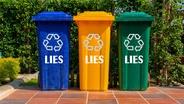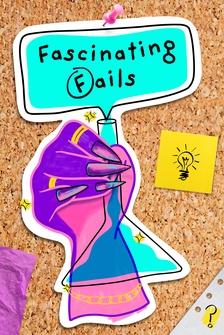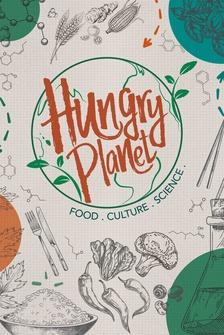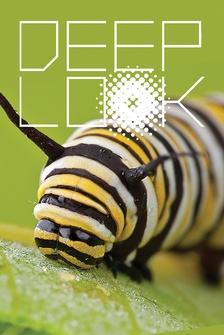- Plastic is one of the most synthetic materials on earth, and yet these wax worms have figured out a way to eat it, and they aren't the only ones.
Scientists have found hundreds of organisms that eat plastic from super worms that eat styrofoam to worms and fungus that can break down bioplastics.
They're calling these organisms plastivores.
At the same time, the world has been making its own discovery about plastic, and that is none of it is truly recyclable, globally, only 9% of plastics are ever recycled, and even that tiny amount still requires some virgin plastic in order to maintain quality.
Meanwhile, much of modern life is literally wrapped in plastic, 99% of which is derived from fossil fuels.
But maybe plastic eating creatures could lead us to a future where recycling isn't a complete myth.
I'm Sinead Bovell, and this is far out.
[upbeat music] Here are those wax worms again, and before you start imagining an army of them chowing down on the Great Pacific garbage patch.
I should say that it's not the organisms themselves that scientists are studying.
It's the enzymes in their bodies.
Enzymes are proteins that help the body break down larger, complex molecules so the body can use them as fuel.
Amazingly, the enzymes in some types of bacteria, fungi and insects have evolved to chew through the chemical bonds of certain plastics to turn them into edible morsels.
Researchers have found 30,000 different enzymes with the potential to degrade plastic this way.
And although there might be a way to use enzymes to clean up plastic pollution, their first application will be for recycling.
- So then you just take that enzyme, you purify it, and then basically you have a big VAT with all your plastic in, and that's where you put your enzyme in and stir it for 24 hours, and then that's where the chemistry happens.
- This is Dr. Elizabeth Bell.
She's on a team that's using enzymes to recycle polyethylene terephthalate, or PET.
PET is the world's largest source of plastic trash, and it's used to make single use bottles, packaging, clothing and carpets.
The enzymes break down PET into individual components called monomers.
Those monomers can be used again, potentially infinitely today.
PET is recycled mechanically, meaning it's crushed, shredded, and melted into smaller pieces, which lowers its quality.
That's why you always need virgin plastic to recycle PET, but the enzymes are much more precise.
They chew through chemical bonds and the result is a pristine monomer.
The problem is enzymes are very slow.
One study found that without any intervention, it took enzymes close to seven weeks to break down a two centimeter long piece of plastic film.
That's why scientists are using machine learning to identify mutations in the enzyme gene pool that make them more efficient.
Then they genetically modify the enzymes to include those mutations.
One promising example is an enzyme called LCCICCG, catchy, right?
This enzyme can break down a 50 gram piece of PET plastic in 24 hours.
That's about four tablespoons.
And I know this seems minuscule, but the idea is to ramp that up to the multi ton scale.
- So it is scalable.
So there's a company in France that's hoping to have like an industrial multi ton, plastics recycling facility that's using enzymes in 2025.
So very imminent.
- Scaling this up could be huge.
The plastic industry generates 82 million metric tons of PET every year.
More than half of that is used to make items that aren't recyclable like clothing and carpets.
If we could indefinitely recycle PET without needing more virgin plastic, those piles of fast fashion could become a resource instead of a burden.
But here's the big problem.
PET is just one type of plastic.
The plastic that your milk jug is made from is different from the plastic in your bottle cap, which is different from the plastic in your coffee cup, which is different from the plastic in your straw.
And when you start adding filler materials to give plastics characteristics like color, stiffness and texture, you end up with tens of thousands of different hybrid plastics, which can't be recycled together.
That's why recycling has been such an epic failure.
It's more expensive to collect, sort, and recycle all those varieties of plastic than it is to just make new plastic.
This is Judith Enc a plastic policy expert.
- So if you look at your own home or apartment near your washing machine, you might have a bright orange hard plastic detergent bottle, and in your refrigerator, you might have a squeezable clear ketchup bottle.
Those two bottles cannot be recycled together.
The people who know that the best are the plastics industry, yet they have spent millions of dollars deceptively fooling the public into just tossing all your plastics into the recycling bin.
- Enzymes can't keep up with the sheer diversity in volume of plastic, at least not yet.
That's because some types of plastic, like polyethylene, which is used to make plastic bags are made with a backbone of just carbon.
That repeating chain of carbon is very resistant to chemical reactions.
That's why these plastics never really biodegrade.
But PET is a good first option because it's made with a mix of carbon and other molecules that allows enzymes to get a foothold in order to chew them up.
And researchers keep discovering new enzymes with amazing capabilities like bacteria that can break down the foam found in seat cushions and diapers or beetle larvae that can break down single use cutlery.
All of this research is still in the early stages of development.
In the future, scientists.
Imagine a world with enzyme cocktails, a mix of enzymes with different appetites that can handle our wildly diverse plastic trash.
But that future is pretty far out, and meanwhile, we're drowning in plastic.
- The fossil fuel industry use plastics as Plan B because they're selling less product to make electricity because we're finally shifting to energy efficiency and clean renewables.
They're selling less product for transportation because of the increase in electric vehicles and electrification in general.
So they have set their sights on doubling plastic production in the next 20 years.
For one reason, they wanna sell more fossil fuel.
- This problem is not something that you or I can recycle our way out of, but there is some hope that global actors are moving on this issue.
In 2022, the UN Environmental Assembly agreed to a global legally binding resolution to tackle plastic trash for the first time.
It might include an overall cap on how much plastic companies can produce or bans on single use items altogether.
It's clear that no one is asking for more plastic.
In fact, 80% of Americans who are registered to vote would like to see policies that reduce plastic, but it's a wicked problem that requires all the solutions at the same time, because we're also completely dependent on plastic, some of it's even lifesaving, like sterile single use plastics used in medical procedures and using plastic to make bumpers and battery casings for cars is crucial for improving fuel efficiency.
The fact that plastic is so valuable to us isn't reflected in how we discard it.
Maybe enzymes can help recapture that value and create a future where recycling isn't just a myth.
[upbeat music]















